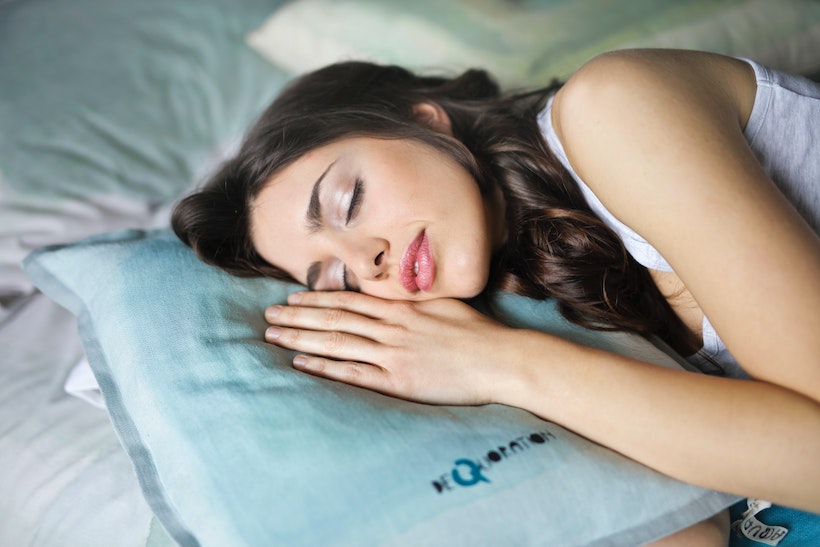
If you’re like most people, you probably don’t get enough sleep. In fact, according to the National Sleep Foundation, adults need 7-9 hours of sleep per night. But with work, family, the stress of an upcoming move with Black Tie Moving, and other obligations, it can be hard to get enough shut-eye. Luckily, there are a few things you can do to improve your sleep quality and get the rest you need. Read on for some tips on how to get better sleep at night.
Establish a regular sleep schedule and stick to it as much as possible
Establishing a regular sleep schedule and actually following it is not only essential to your physical health but can enhance your mental well-being too. Setting an established time for going to bed and getting up makes it easier for the body to settle into a pattern or routine. This can, in turn, help improve your ability to fall asleep quickly, sleep through the night and wake up feeling more rested in the morning. Sleeping soundly is also beneficial because it allows our brain to process information we learned throughout the day and restocks us with energy so we can tackle whatever comes next. All in all, setting a consistent sleep schedule is ideal for any person who prioritizes health and wellness.
Keep your bedroom dark, quiet, and cool to create an ideal sleeping environment
Getting a good night’s sleep is essential to our overall health and well-being. To create an ideal sleeping environment, consider keeping your bedroom dark, quiet, and cool. Darkness helps the body produce melatonin, the hormone that regulates our natural sleep cycle. Eliminating noise from external sources—and even avoiding the ticking of clocks—will further facilitate restful slumber. Lastly, try to keep your room between 60 and 67 degrees Fahrenheit for optimal comfort during sleep. With these easy steps, you can create a space conducive to quality rest so you can wake up feeling refreshed and energized each day.
Avoid caffeine and alcohol before bedtime
There are many reasons why avoiding caffeine and alcohol before going to bed is important for your well-being. Caffeine stimulates alertness and can make it difficult for you to fall asleep, while the consumption of alcohol has been linked to poor sleep quality and a lack of deep sleep, leading to fatigue or difficulty waking up. Unfortunately, both of these substances interfere with natural sleep patterns, resulting in a less restful night’s sleep. Furthermore, by avoiding them at night and instead focusing on alternative methods of relaxation, such as reading or yoga, you may find that it helps you get a more restful and fulfilling night’s sleep.
Get up and move around during the day to stay active
Staying active during the day is an important part of a healthy lifestyle. When you get up and move around, not only do you help your physical health but your mental health too! There are numerous benefits to staying physically active throughout the day, including improved concentration, decreased levels of stress and fatigue, and better control of your weight. Taking regular breaks to move around can be an effective way to boost your energy level and productivity. Even small actions like stretching, taking a walk outside, or practicing some simple yoga poses can make a huge difference in how vitalized and productive you feel. Keep in mind that any amount of physical activity is better than none at all; by taking the time to incorporate small activities into your daily routine, you’ll be giving yourself the best opportunity to stay healthy.
Practice some relaxation techniques before bedtime such as deep breathing or meditation
One of the best ways to ensure a good night’s sleep is to practice some relaxation techniques before bedtime. Deep breathing, for example, can help you clear your mind and relax your body from any lingering stress. This helps you fall asleep easier and get the rest that you need. Alternatively, meditation is another great technique for calming down before slipping into bed. You can focus on clearing your mind or visualize a relaxing scene such as a beach or a forest in order to drift off feeling more relaxed and peaceful. Try out different methods and find out what works best for you!
Establishing and sticking to a good sleep routine is essential for staying healthy and alert throughout the day. Along with establishing a regular schedule, it is also important to pay attention to your environment when trying to fall asleep. Keep your room dark, quiet, and cool for optimal comfort and limit caffeine and alcohol in the evenings to prepare your body for restful sleep. Remember to stay active during the day so that you’re easily able to switch over to sleep mode when bedtime comes around. Lastly, choose calming activities before bed such as deep breathing or meditation in order to relax both your mind and body before falling asleep. With these tips in mind, you will be able to improve your quality of sleep – allowing you more energy throughout the day!